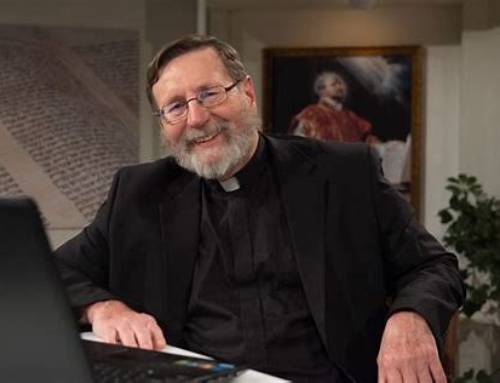As a convert from Anglicanism I remember important conversations among my fellow Anglican clergymen about the “validity” of the sacraments.
Pope Leo XII famously judged Anglican orders to be “null and utterly void”, but what does that mean and what do Catholics mean about “validity”?
Most people would associate validity with authenticity, value, goodness and (in sacramental theology) the authentic conveyance of saving grace. If this is the case what do we mean by valid sacraments in the Catholic sense?
Non-Catholics often do not understand the precise legal perspective that Catholicism has on theological questions. Because Protestantism is so often individualistic and subjective in its understanding and statements, non-Catholics miss the objective, precise terminology and thinking of Catholics.
So when Catholics say a sacrament is valid or not we are not saying it is a bad thing, that it is useless, empty or a useless waste of time. It could very well be that an Anglican or Methodist or Lutheran communion service is a meaningful act of Christian worship–one that is helpful in drawing a person closer to Jesus, an act of worship that builds up the community, inspires the faithful and is a subjectively profound act of commitment and expression of the worshipper’s love of Christ. It may also be a channel of grace–recognizing that God is not limited by his sacraments. In this case, a non-Catholic sacrament may be a good and worthy thing.
After I came into the Catholic Church some of my former Anglican friends would ask, “What do you think about all those Anglican sacraments you celebrated?” I would reply, “I don’t have a judgement on those. I am happy for Anglicans to tell me what they were (knowing of course, that the Anglicans had umpteen ideas about what they were) however I know what they were not. They were not valid Catholic sacraments.”
If non-Catholics got upset by that simple, clear statement of Catholic belief I would remind them that their own confessions of faith declare that the Eucharist is not what the Catholic Church says it is and in that sense the statement of our Catholic belief was not a condemnation of them or their church and their sacraments, but an affirmation of their own doctrinal statements.
Similarly, when an Anglo-Catholic priest claims to be a Catholic priest I will point out that the doctrinal statement he has to publicly affirm at his ordination (the 39 Articles of Religion) expressly and specifically denies the central tenets of the Catholic religion. He therefore can only pretend to be a Catholic priest, and in doing so he is either a monumental hypocrite or committed public perjury and blasphemy when he solemnly affirmed and signed the 39 Articles of Religion.
So be it, and finally, to answer the question posed in the title of this post, the validity of a sacrament is not dependent on how one feels about it, on the worthiness of the minister or the recipient, on the quality of the worship experience or the refinement of the liturgy. It is a juridical theological definition. A valid Catholic sacrament is one that has valid form (the words used), valid matter (the physical stuff of the sacrament) and a valid minister–and what each of these are for the seven different sacraments is determined by the valid authority: the Catholic Church.
Finally, a potential clergy convert from Anglicanism needn’t worry about “denying the validity of his Anglican sacraments” in becoming a Catholic he is simply saying that they may have been good and worthy Anglican sacraments–sacraments that God may have used to dispense his grace, but they were not valid Catholic sacraments.







Leave A Comment
You must be logged in to post a comment.